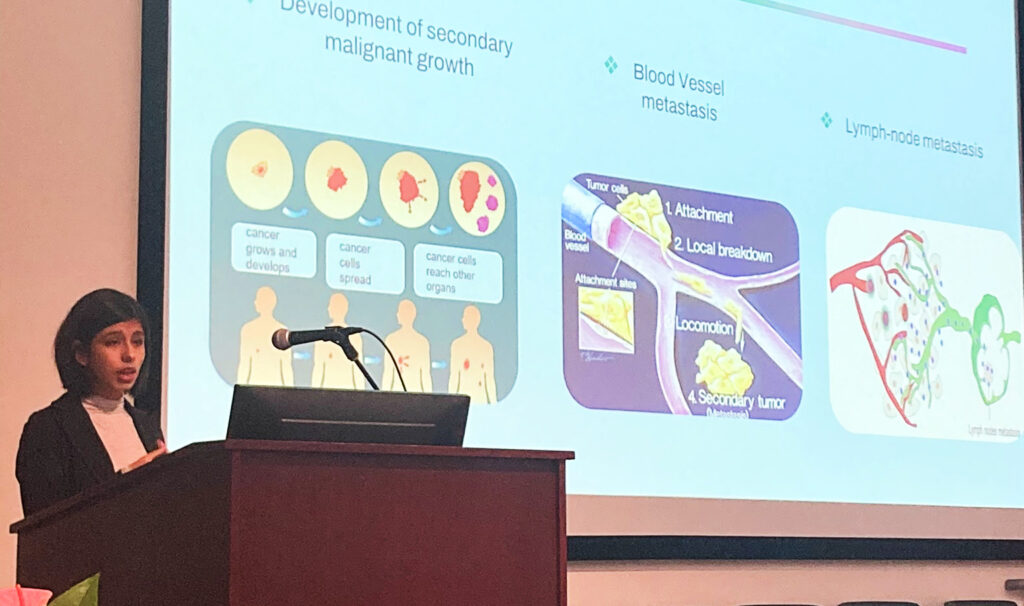Metastasis simply means the spread of cancer from where it was first formed, the “primary organ” to grow in another site in the body, a “secondary organ”. We can think of it as a cancer cell progressing from one level to the next as it becomes cunningly skillful. To understand this process, let’s start from the very beginning.

Cancer cells start off as normal cells in our bodies that acquire the abnormal ability to keep replicating uncontrollably through cell division. Although our body tightly regulates cell division through various checkpoints, cancerous cells escape these checkpoints to grow independently, so in other words, they no longer need “permission” to grow. This is a result of damage in their DNA known as a mutation. Mutations can either be inherited or introduced through harmful carcinogens like UV rays or smoking.
Initially, these replicating cancer cells are confined to grow in the same site they originated from, so in the case of breast cancer that would be the breast tissue. Here they start forming a tumor mass, the small hard bump that we are told to watch out for! However, over time, like a ripple effect, the more uncontrollably cells grow, the more mistakes they can make when replicating their DNA, so more mutations are able to accumulate. Over time, accumulating mutations allow these cancer cells to evolve and become “smarter” or more aggressive. As they evolve, they gain different skills that enable them to break free from the initial tumor mass and enter the blood or lymphatic circulation. These circulatory systems travel all over the body to deliver their fluids to all our organs and tissues. Since the cancer cells entered these circulations, they essentially “hitched a ride” to travel around the body to select their next location.

Breast cancers most frequently metastasize to the bones, liver, lungs, and brain where they form new tumor masses. Unfortunately, at this stage the doctor can no longer surgically remove every tumor mass spread throughout the body and so treatment mainly involves drugs. Because the evolution of cancer cells within the metastatic tumor is different than for those in the primary tumor, they rely on different “skill sets” for growth. For this reason, it’s important to identify and specifically be able to target these skills to effectively limit their growth.
Thanks to the amazing ongoing research, more successful targeting therapies have been developed to treat women with metastatic breast cancer and their prognosis is slowly getting better. However, there is still so much more we can explore and find out to help these women have a much greater outcome.








